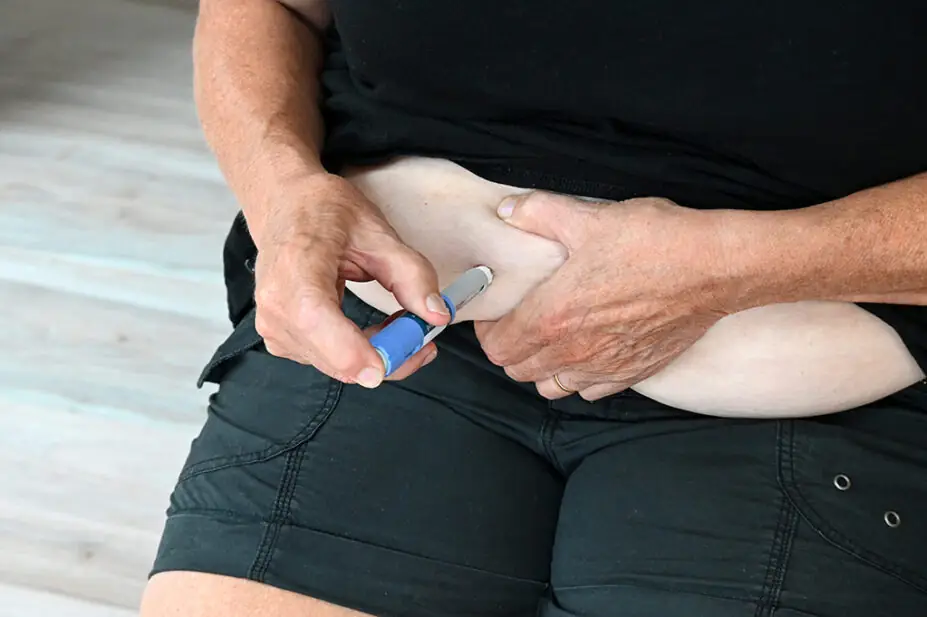
Shutterstock.com
NHS England has published proposals for a phased launch of the obesity injection tirzepatide (Mounjaro: Eli Lilly), which it estimates could be rolled out to treat 1.6 million people by 2036.
In an announcement published on 3 October 2024, the National Institute for Health and Care Excellence (NICE) said the proposal included providing a variety of “new community-based services and digital technologies”, which will be developed to improve access to tirzepatide “over the following nine years”.
“These models will be tested and evaluated with the most appropriate and cost effective selected to support weight loss” without a precedented maximum duration of the roll out to allow a “more rapid expansion” of the service, it added.
The proposals have been set out in an application from NHS England to NICE, which has put the proposals out for consultation until 22 October 2024.
Tirzepatide is a glucagon-like peptide receptor agonist, which is injected under the skin of a patient’s stomach area, thigh or upper arm once per week. It works by regulating patient’s appetite, making them feel less hungry and experience fewer food cravings.
At present, a weight management pathway for tirzepatide does not exist. The new service model proposed by NHS England has three stages:
- Stage 1: patient assessment, counselling and training;
- Stage 2: dose titration to maximum tolerated dose of tirzepatide;
- Stage 3: maintenance of treatment in responders.
As part of the service, NHS England also highlighted the need for “routine screening for psychological issues” prior to and during the course of treatment.
Using evidence from patients screened for bariatric surgery and clinical opinion, NHS England has estimated that one in three patients will need ongoing psychological support during their course of treatment.
In the proposal, NHS England also recommended a “phased clinical priority approach, which will prioritise patients with the highest clinical need”, identified as those with a BMI of more than 40kg/m2 and at least three specific weight-related health problems, which include hypertension, dyslipidaemia, obstructive sleep apnoea and cardiovascular disease.
Over time, the service will be extended to those “at the lower bound of the committee’s clinical recommendations”, including those with a BMI of more than 40 plus two of the listed weight-related health problems. This will be followed by people with a BMI of more than 40 plus one of the listed weight-related health problems.
NHS England has estimated that the service will be delivered to “nearly a quarter of a million people during the first three years of implementation”, which will grow to around 1.6 million patients over a subsequent nine-year period.
The service model is estimated to have a theoretical annual cost of up to £1.6bn by 2026/2027.
Commenting on the proposals, Simon Cork, senior lecturer in physiology at Anglia Ruskin University, said: “The detail of what this roll out will look like is key to how effective this drug will be in a real-world setting.
“The NICE press release speaks of ‘community-based services’ and ‘digital technologies’ to roll out the medication to a ‘quarter of a million people’ with a multidisciplinary team involved to provide dietary and nutritional support.
“This is no small task for the NHS, and it will be difficult to provide the level of wraparound care seen in patients who took part in the clinical trial, which is likely necessary to achieve maximum health benefits.”
In June 2024, NICE recommended tirzepatide for managing overweight and obesity in draft guidance following positive results from clinical trials, results of which showed that patients lost an average of 20.9% of their bodyweight in 36 weeks.
In its latest announcement, NICE said that the new service could be offered in either primary or secondary care, with a group of healthcare professionals coming together to form a multidisciplinary team, including a dietitian, psychologist and physical activity instructor.
Sir Stephen Powis, national medical director at NHS England, said: “This drug will be a powerful part of our arsenal to tackle obesity and support many more people to lose weight and reduce their risk of diabetes, heart attack and stroke, and this phased roll out will ensure those with the greatest clinical need can access it as a priority — with [750,000] people able to benefit over the first three years — while we develop new and innovative services through which other weight loss treatments can also be delivered.”


